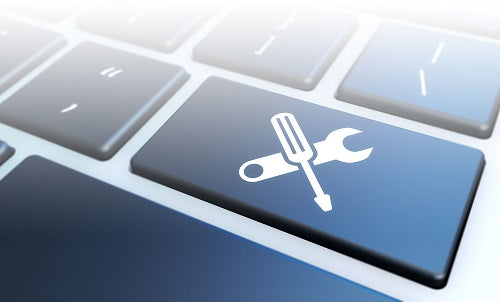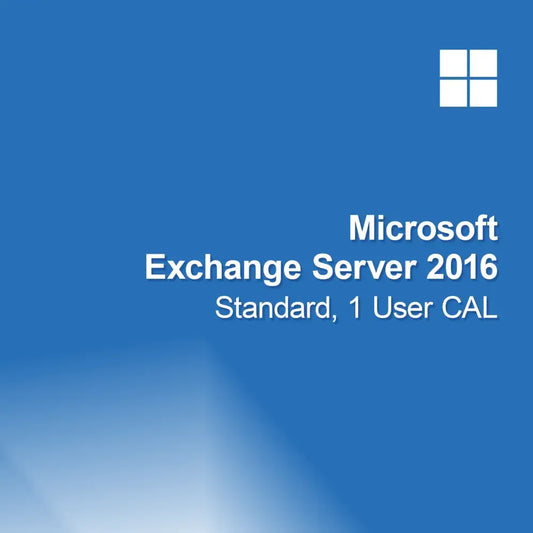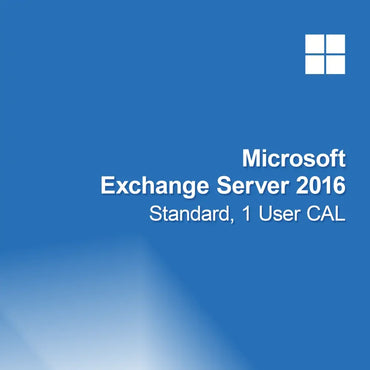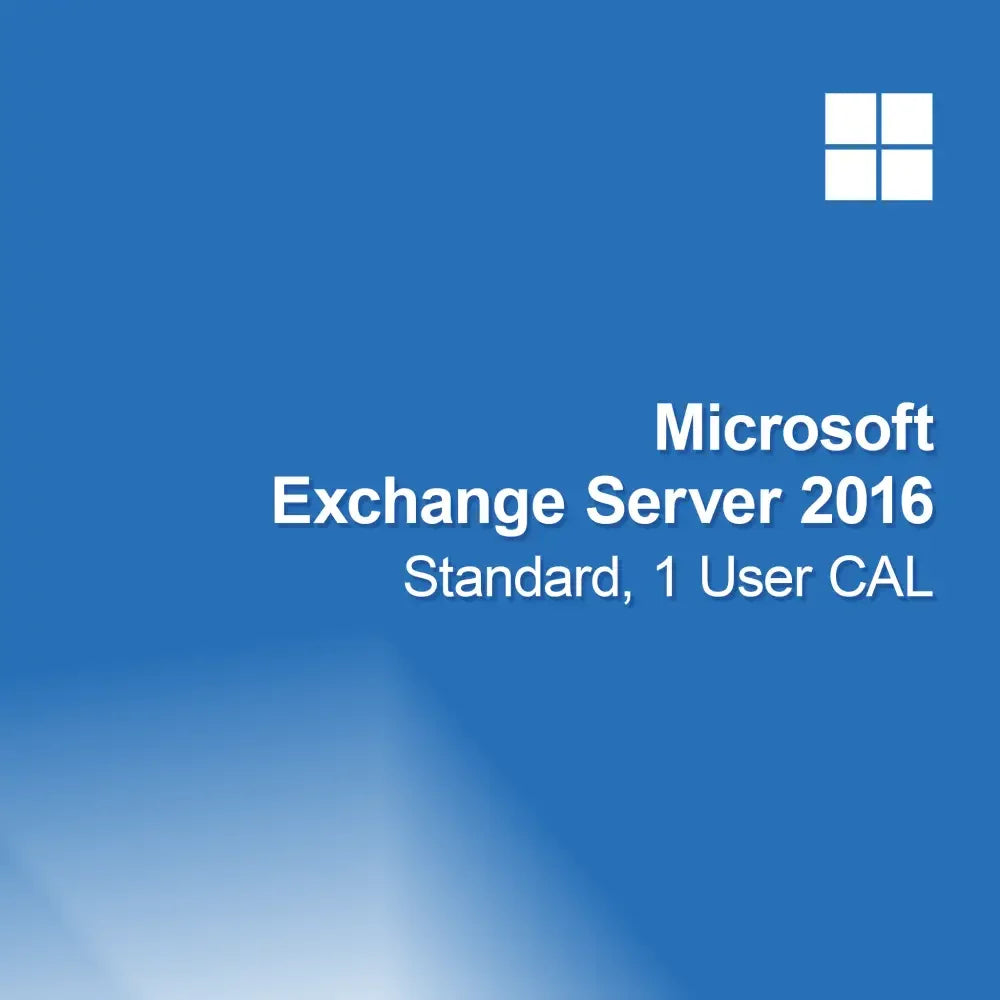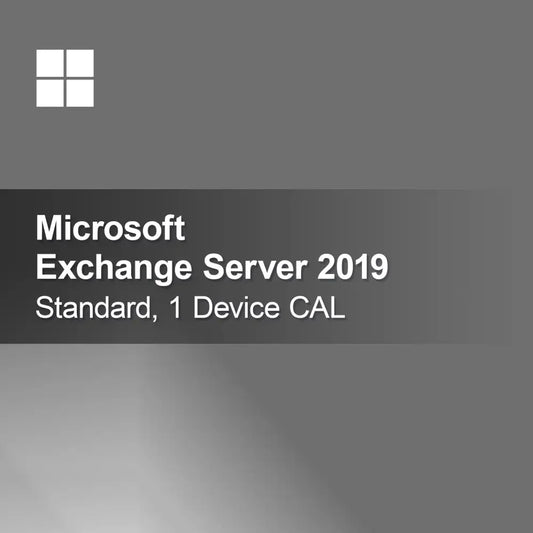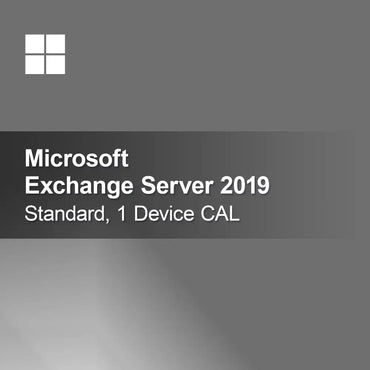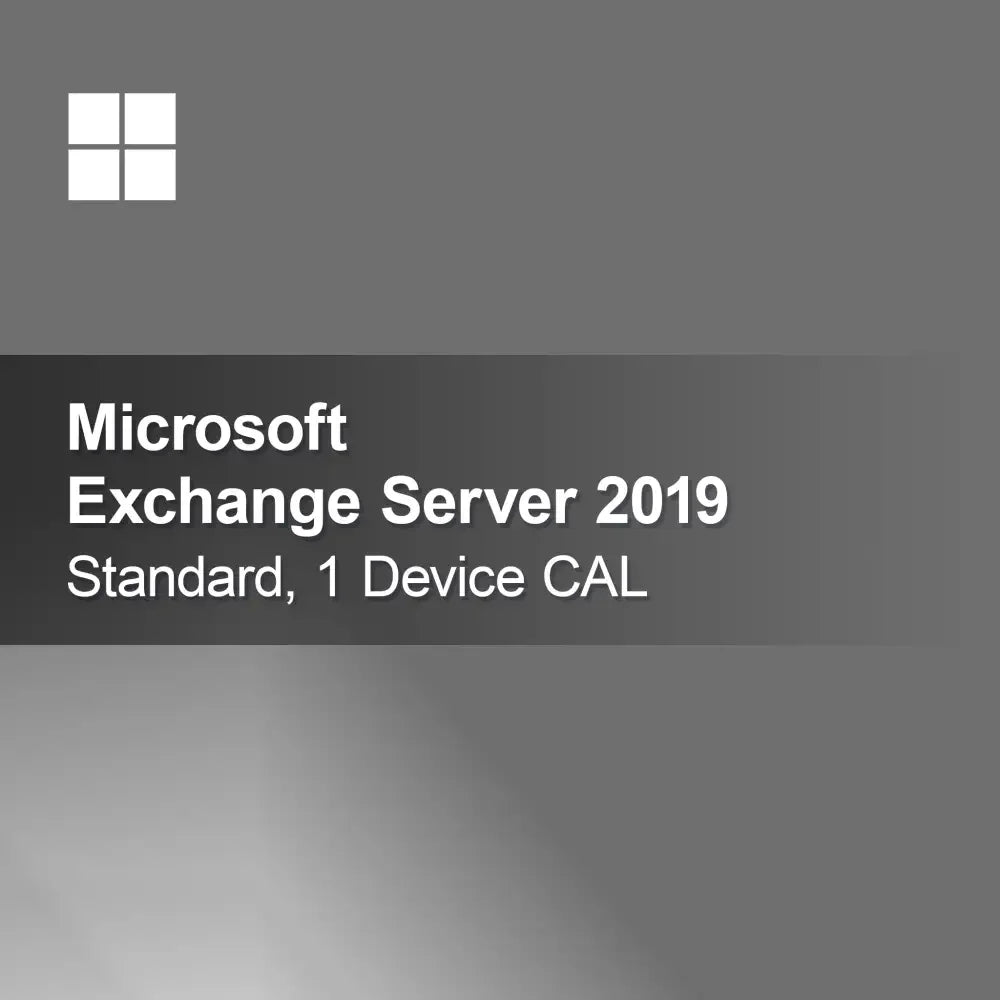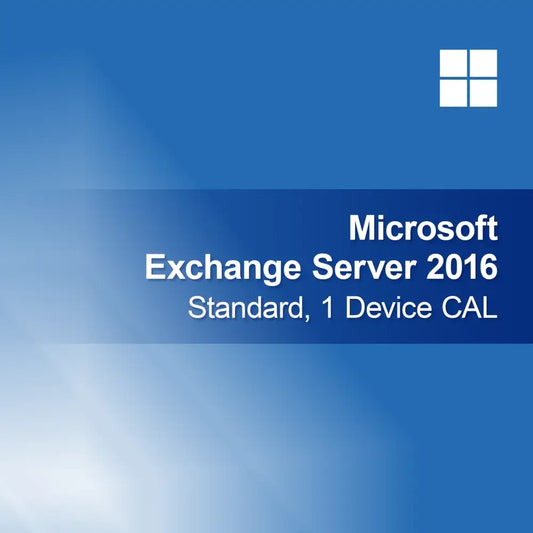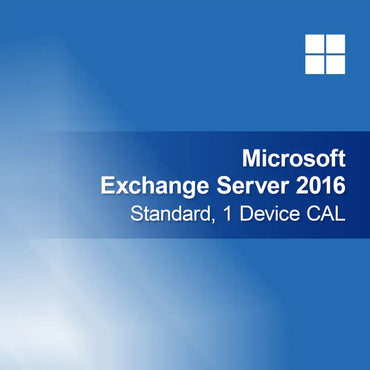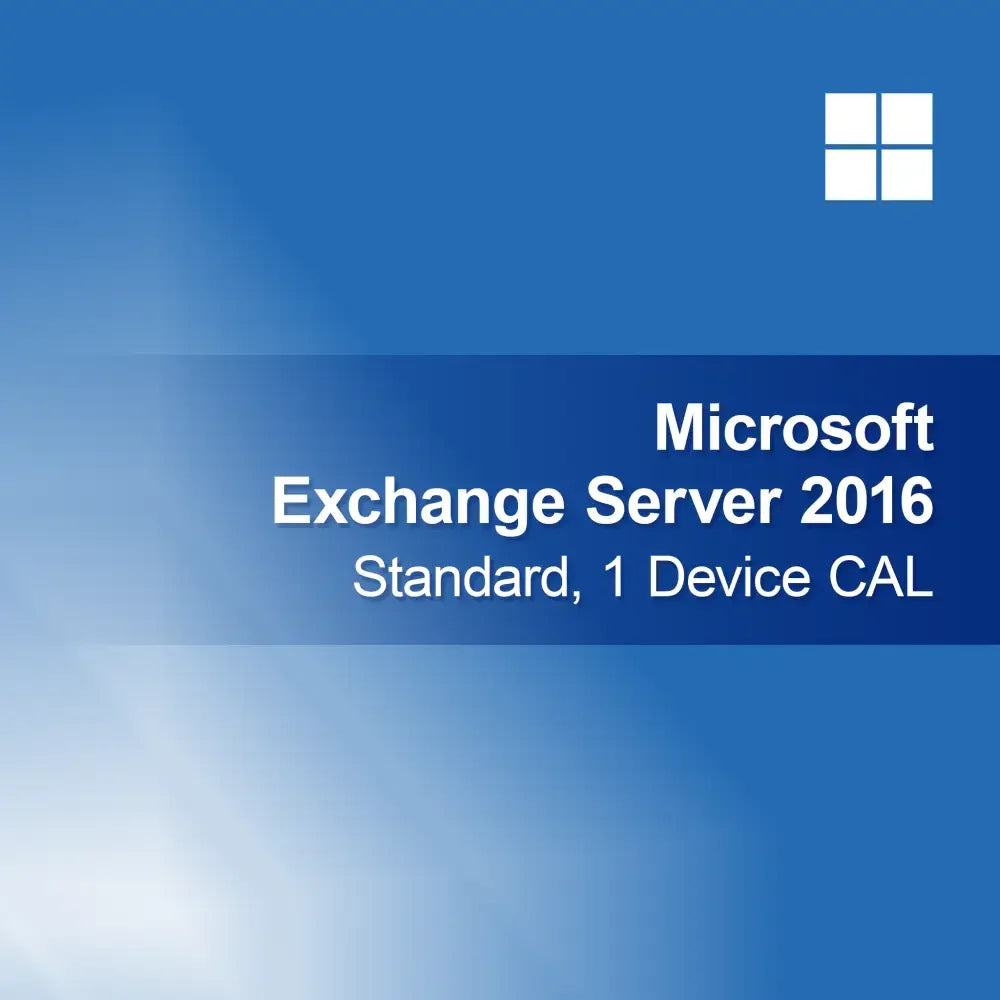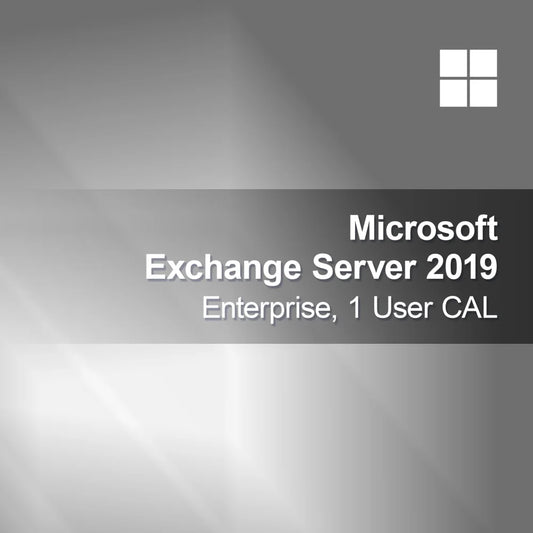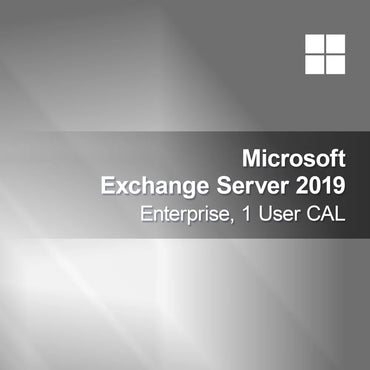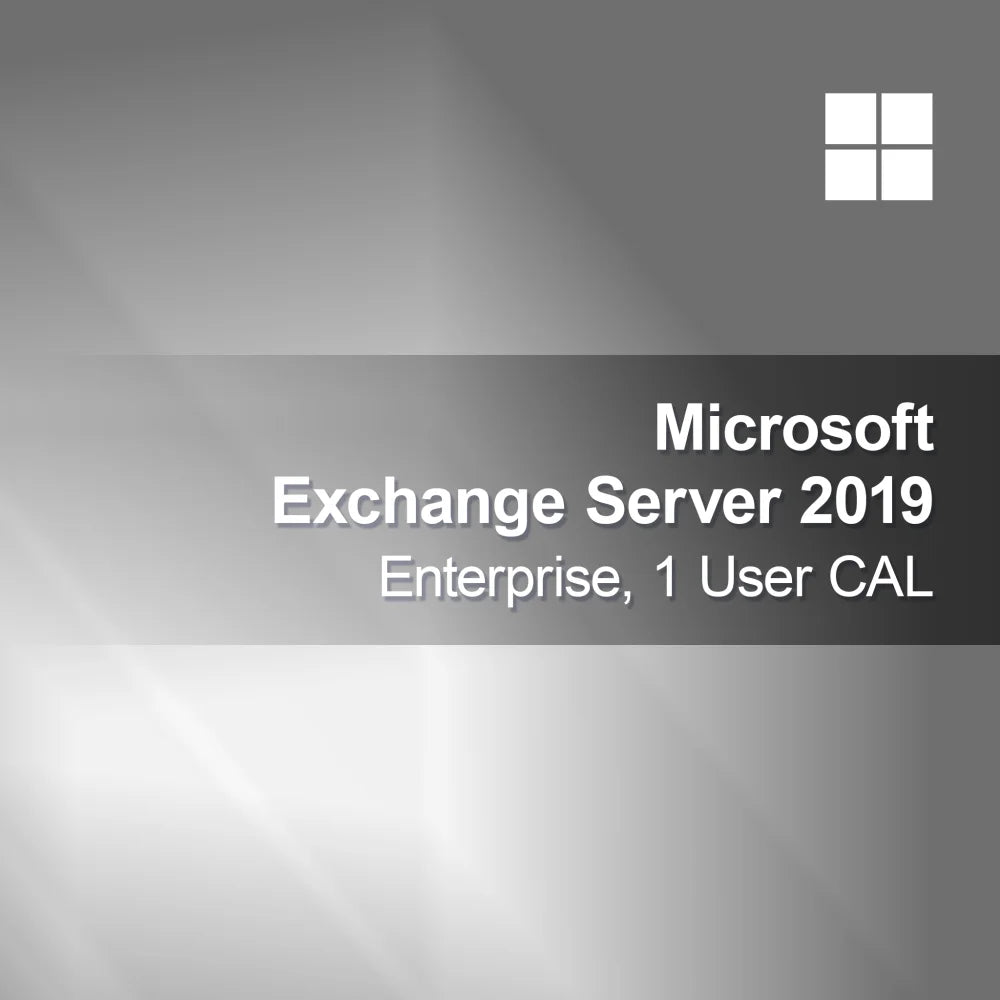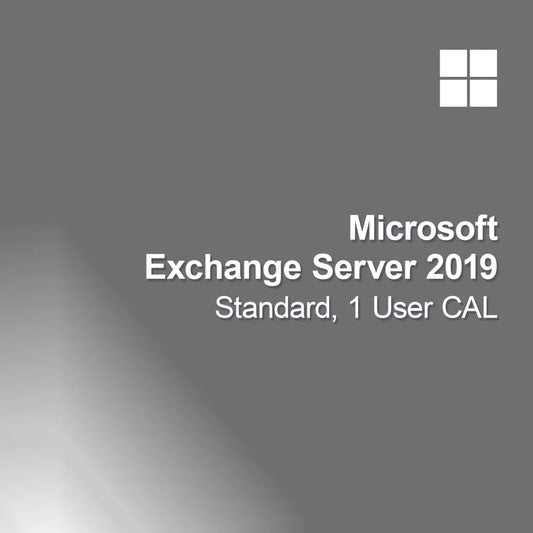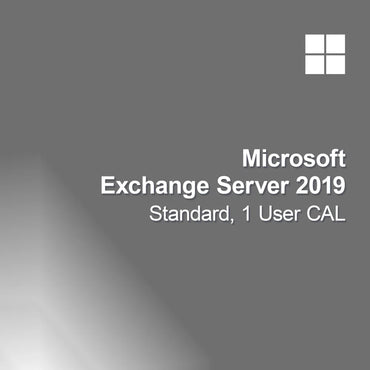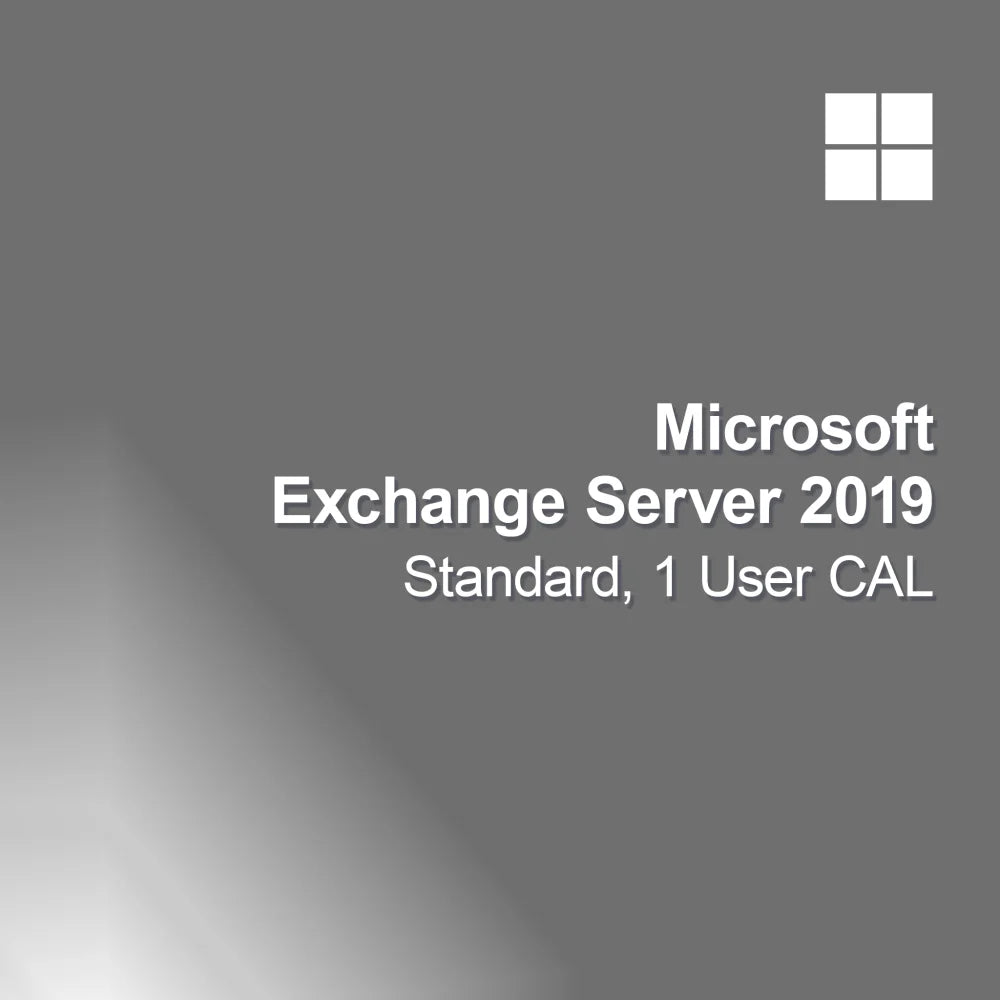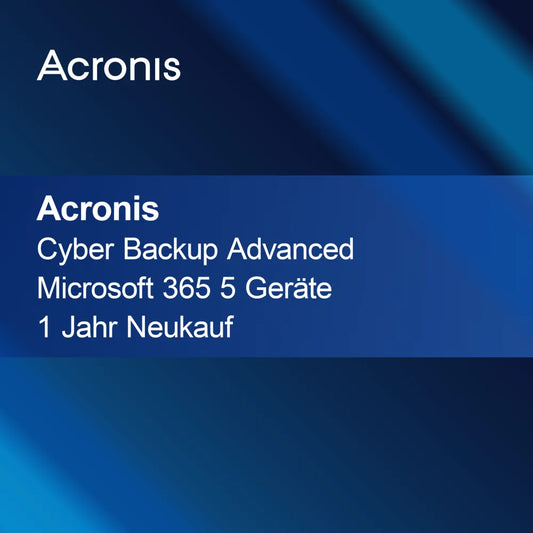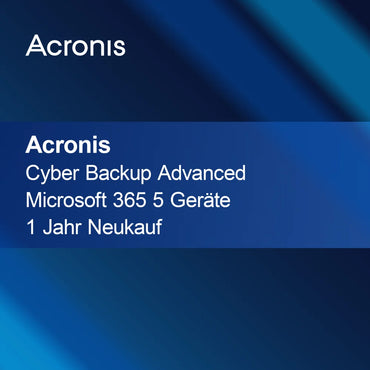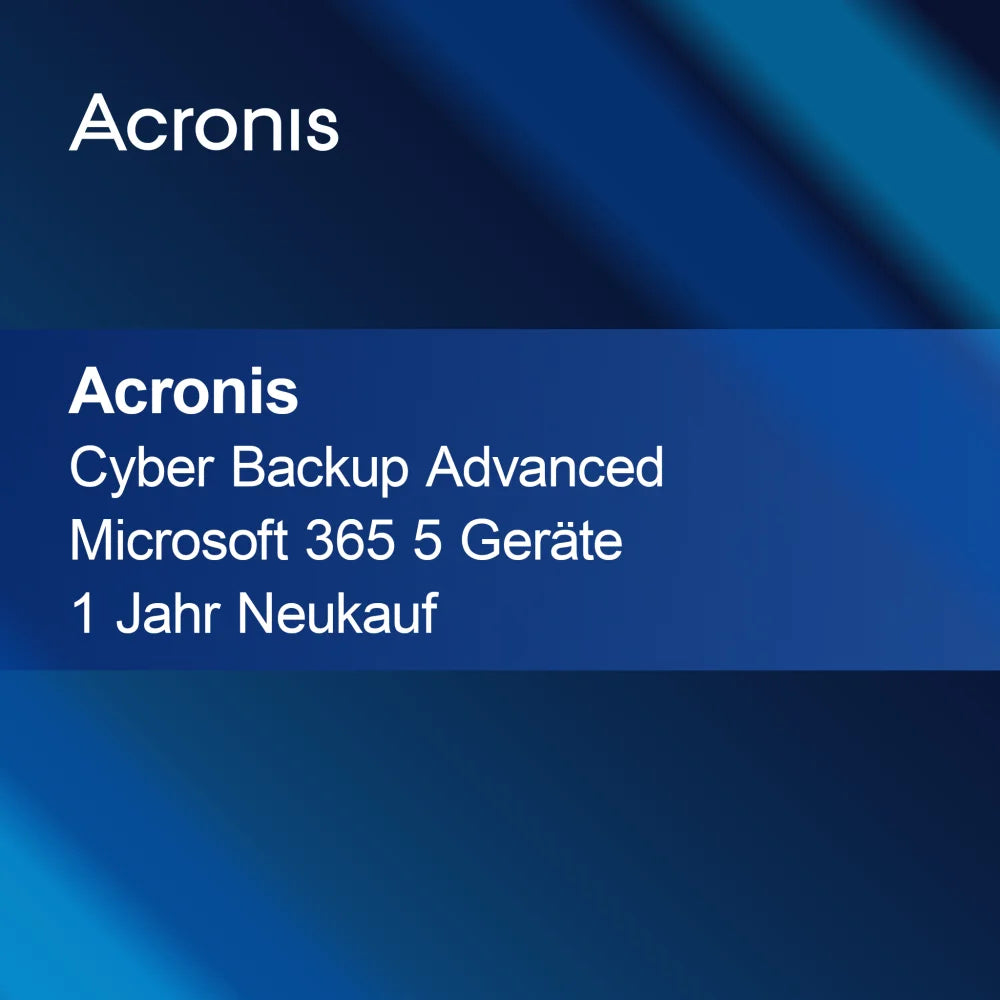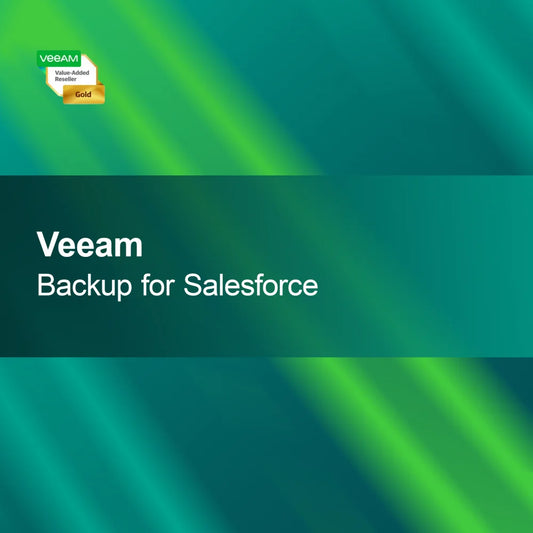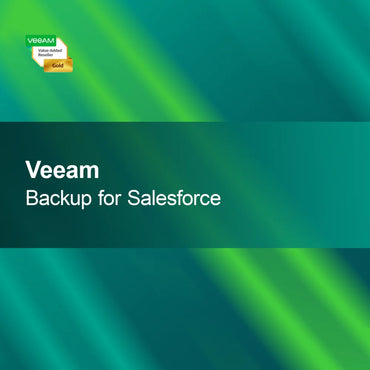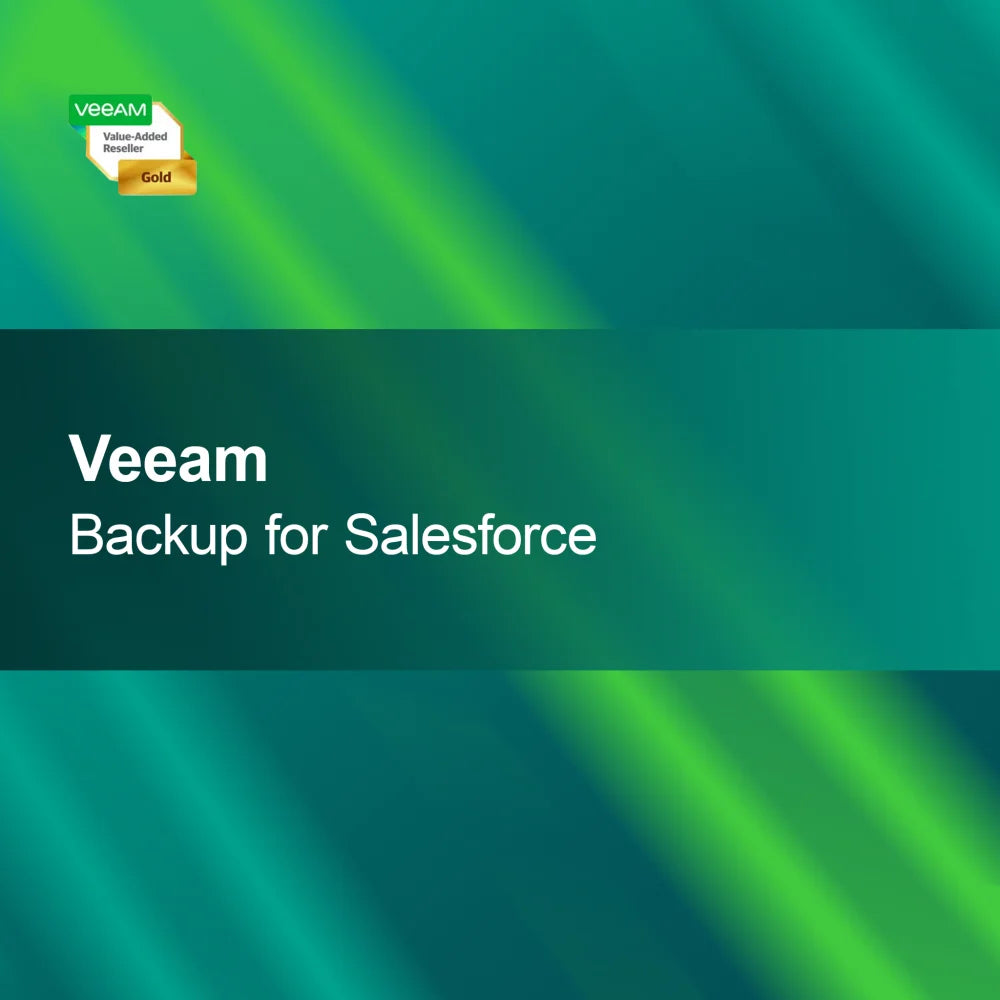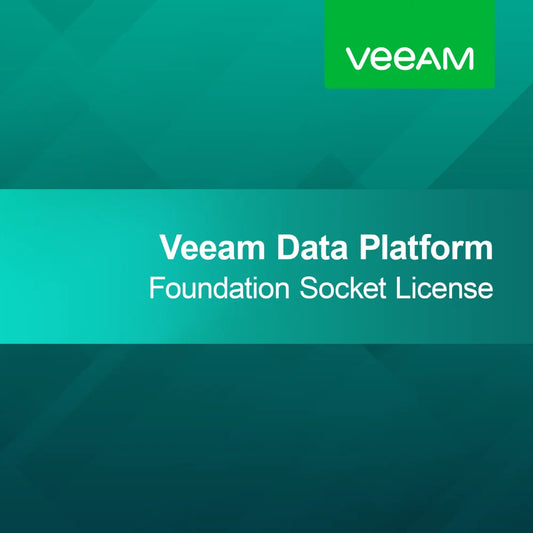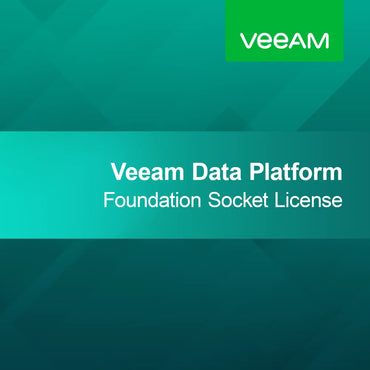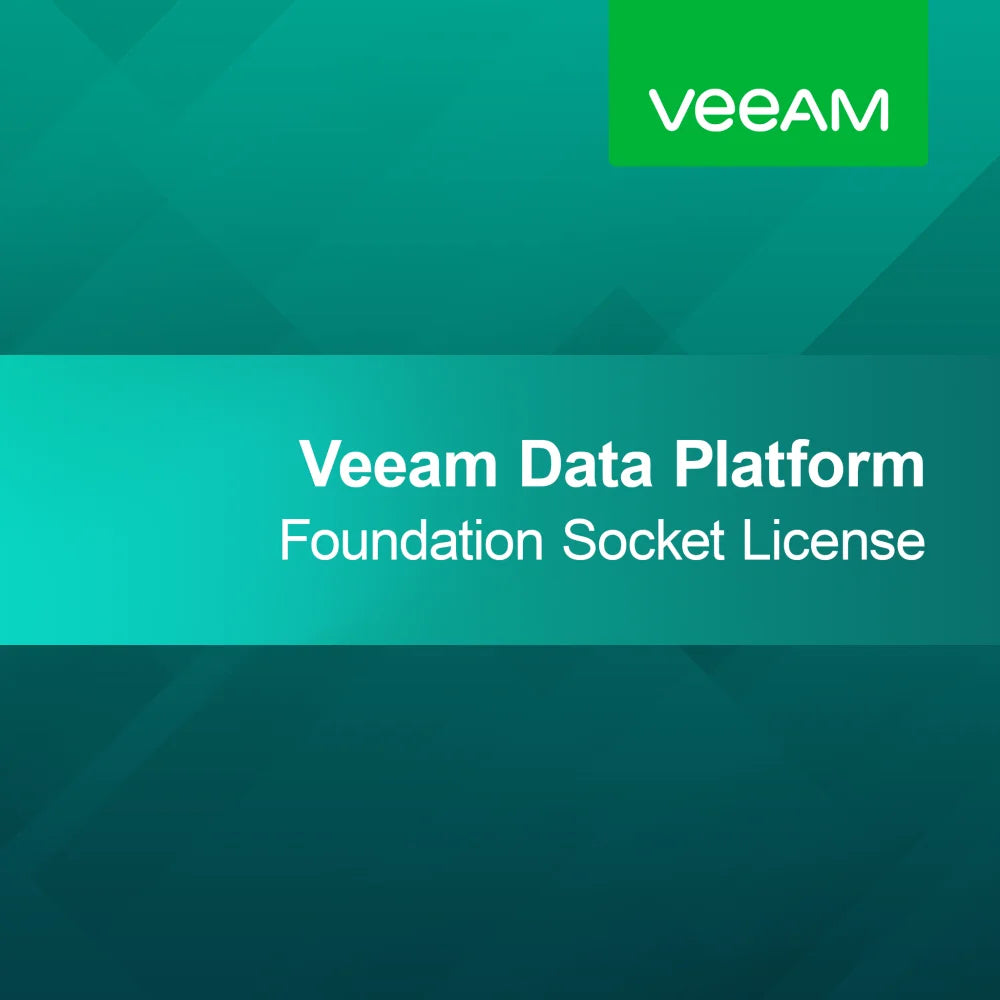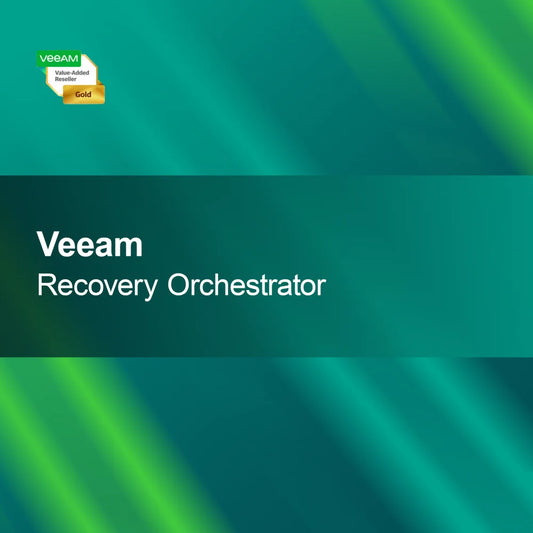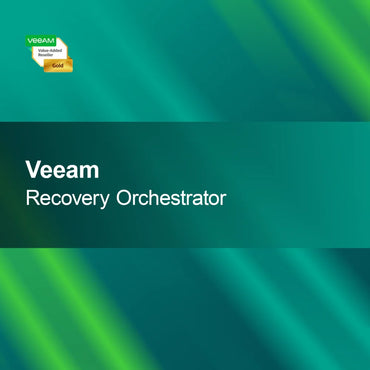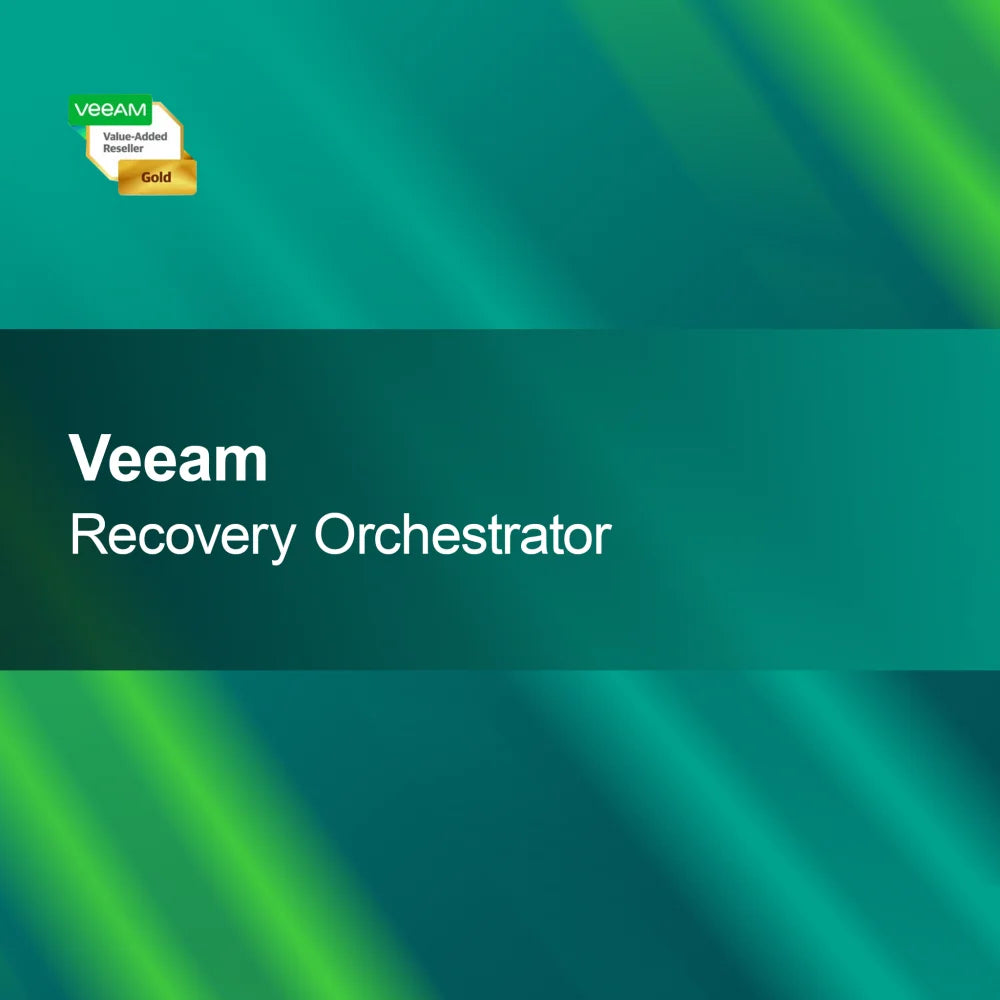-
Microsoft Exchange Server 2016 Standard, 1 User CAL
Regular price €21,95Sale price €21,95 Regular priceUnit price perMicrosoft Exchange Server 2016 Standard, 1 User CAL With the license key for Microsoft Exchange Server 2016 Standard, you get a powerful and reliable solution for...
-
Microsoft Exchange Server 2019 Standard, 1 Device CAL
Regular price €33,95Sale price €33,95 Regular priceUnit price perMicrosoft Exchange Server 2019 Standard, 1 Device CAL With the license key for Microsoft Exchange Server 2019 Standard, 1 Device CAL, you get a powerful and...
-
Microsoft Exchange Server 2016 Standard, 1 Device CAL
Regular price €21,95Sale price €21,95 Regular priceUnit price perMicrosoft Exchange Server 2016 Standard, 1 Device CAL With the license key for Microsoft Exchange Server 2016 Standard, 1 Device CAL, you get a reliable and...
-
Microsoft Exchange Server 2019 Enterprise, 1 User CAL
Regular price €39,95Sale price €39,95 Regular priceUnit price perMicrosoft Exchange Server 2019 Enterprise, 1 User CAL With the license key for Microsoft Exchange Server 2019 Enterprise, you get a powerful solution for email, calendar,...
-
Microsoft Exchange Server 2019 Standard, 1 User CAL
Regular price €33,95Sale price €33,95 Regular priceUnit price perMicrosoft Exchange Server 2019 Standard, 1 User CAL With the license key for Microsoft Exchange Server 2019 Standard, 1 User CAL, you get a powerful solution...
Exchange Server CAL
What is an Exchange Server CAL?
An Exchange Server Client Access License (CAL) is a license that allows users to access the features of the Microsoft Exchange Server. These licenses are required to ensure that all users accessing the server are properly licensed. There are different types of CALs that can be selected depending on the specific requirements of your company. Choosing the right CAL is crucial for compliance with licensing terms and optimal use of server features.
What types of Exchange Server CALs are there?
There are two main types of Exchange Server CALs: the Standard CAL and the Enterprise CAL. The Standard CAL offers basic features such as email, calendar, and contacts, while the Enterprise CAL includes advanced features like Unified Messaging and enhanced security options. The choice between these two CAL types depends on your company's specific requirements and desired features.
How many CALs do I need for my company?
The number of CALs needed depends on the number of users who will access the Exchange Server. Each person who wants to access the server requires their own CAL. It is important to estimate the number of users accurately to ensure you purchase enough licenses without violating license terms. Careful planning can also help minimize future costs.
What should I consider when installing CALs?
When installing Exchange Server CALs, you should ensure that you assign the licenses correctly. This is usually done through the Exchange Management Console or PowerShell. It is important to properly activate and manage the CALs to ensure that all users have access to the required features. Incorrect assignment can lead to access issues.
- Standard CAL for basic email and calendar functions
- Enterprise CAL for advanced features and security options
- User-based licenses for everyone who accesses the server
How can I purchase Exchange Server CALs?
Exchange Server CALs can be purchased through authorized Microsoft resellers or directly from Microsoft. It is advisable to learn about the different licensing options and packages to find the best solution for your business. Make sure to understand the license terms to ensure you select the right CALs for your needs.
How do Exchange Server CALs differ from other licenses?
Exchange Server CALs differ from other licenses, such as server licenses, because they are specifically required to access the features of the Exchange Server. While a server license covers the operation of the server itself, the CAL regulates user access to that server. It is important to understand both types of licenses to ensure compliance and use the software efficiently.
What are the system requirements for Exchange Server?
To successfully operate an Exchange Server, certain system requirements must be met. These include a supported operating system, sufficient memory and storage space, as well as an appropriate hardware configuration. It is important to check these requirements before starting the installation to ensure that the server runs smoothly and supports all users optimally.
